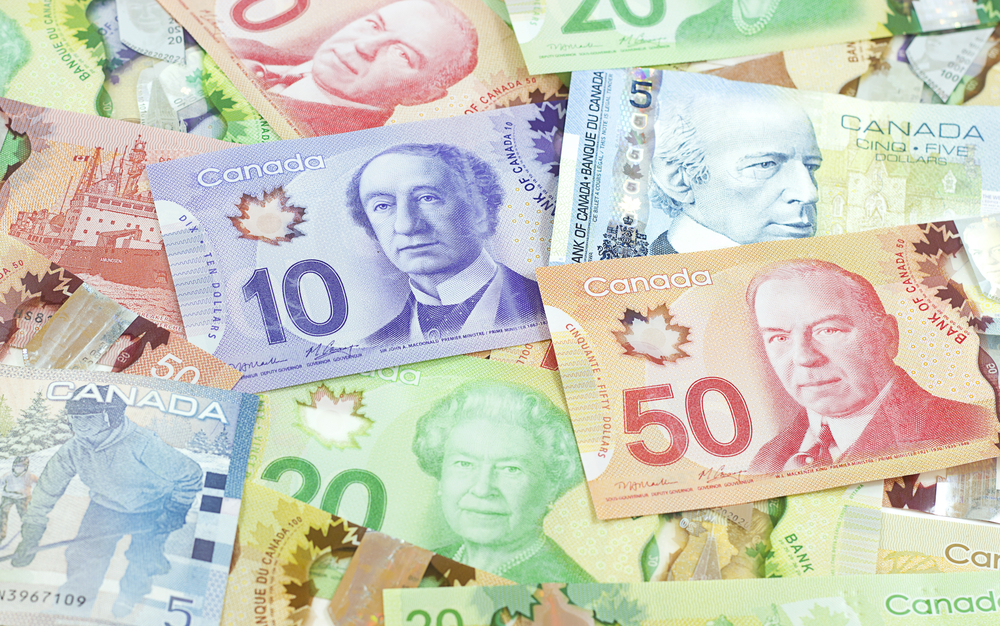Business and Economy
Canadian dollar soars as Bank of Canada hikes interest rate, while TSX dips
TORONTO—The Canadian dollar soared to a level not seen in nearly a year Wednesday after the Bank of Canada announced it was hiking its key lending rate for the first time since 2010.
The loonie was trading at an average price of 78.16 cents US, up 0.76 of a U.S. cent. The last time the currency closed above 78 cents US was in August 2016.
Eric Theoret, a currency strategist and director at Scotiabank (TSX:BNS), says although the markets had been anticipating a rate increase from the central bank, it was not expecting Bank of Canada governor Stephen Poloz to express so much confidence about the move.
“The expectations were for a dovish hike, which would’ve been seen as the consensus heading into this,” he said. “And really what we had was a very confident, almost hawkish hike in that sense.”
Theoret says the markets were largely forecasting that the bank would reverse rate cuts it put in place in 2015 to help the Canadian economy deal with a plunge in oil prices, and then enter a wait-and-see mode before making any more moves.
But what it’s now reading from the central bank is that any future decisions will be data-dependent.
The dollar has strengthened in recent weeks, buoyed by positive economic data, and growing anticipation of the interest rate decision. The Bank of Canada raised the rate by a quarter of a percentage point to 0.75 per cent, still low by historical standards.
Kash Pashootan, a senior vice-president at First Avenue Advisory, a Raymond James company, says the loonie’s rapid appreciation is being led by fresh expectations that the bank will raise rates again at its next announcement in October.
“On a day like today, it’s nice to see the Canadian dollar stronger and it’s easy to start to build the case for a couple more rate hikes. But it’s crucial that we do not underestimate how detrimental premature interest rate hikes can be to the Canadian economy and to the overall confidence of the equity markets,” he cautioned.
“I don’t believe the Canadian economy can bear another interest rate hike in 2017.”
In equities, the Toronto Stock Exchange’s S&P/TSX composite index was flat, dipping 5.15 points at 15,143.99 after climbing more than 100 points earlier in the session. The index was led by gains in Canada’s real estate and consumer staples sectors.
In New York, the Dow Jones industrial average was up 123.07 points at 21,532.14, a record high. The S&P 500 index was ahead 17.72 points at 2,443.25, while the Nasdaq composite index climbed 67.87 points, or more than one per cent, to 6,261.17.
Federal Reserve chairwoman Janet Yellen kicked of two days of testimony in front of Congress Wednesday, telling legislators that the U.S. central bank expects to keep raising its key interest rate at a gradual pace and also plans to start trimming its massive bond holdings this year.
Many economists believe the Fed, which has raised rates three times since December, will hike rates one more time this year.
In commodities, the August crude contract advanced 45 cents to US$45.49 and August gold gained $4.40 at US$1,219.10 an ounce.
The September copper contract jumped a penny at US$2.68 a pound and August natural gas was down six cents to US$2.99 per mmBTU.






















